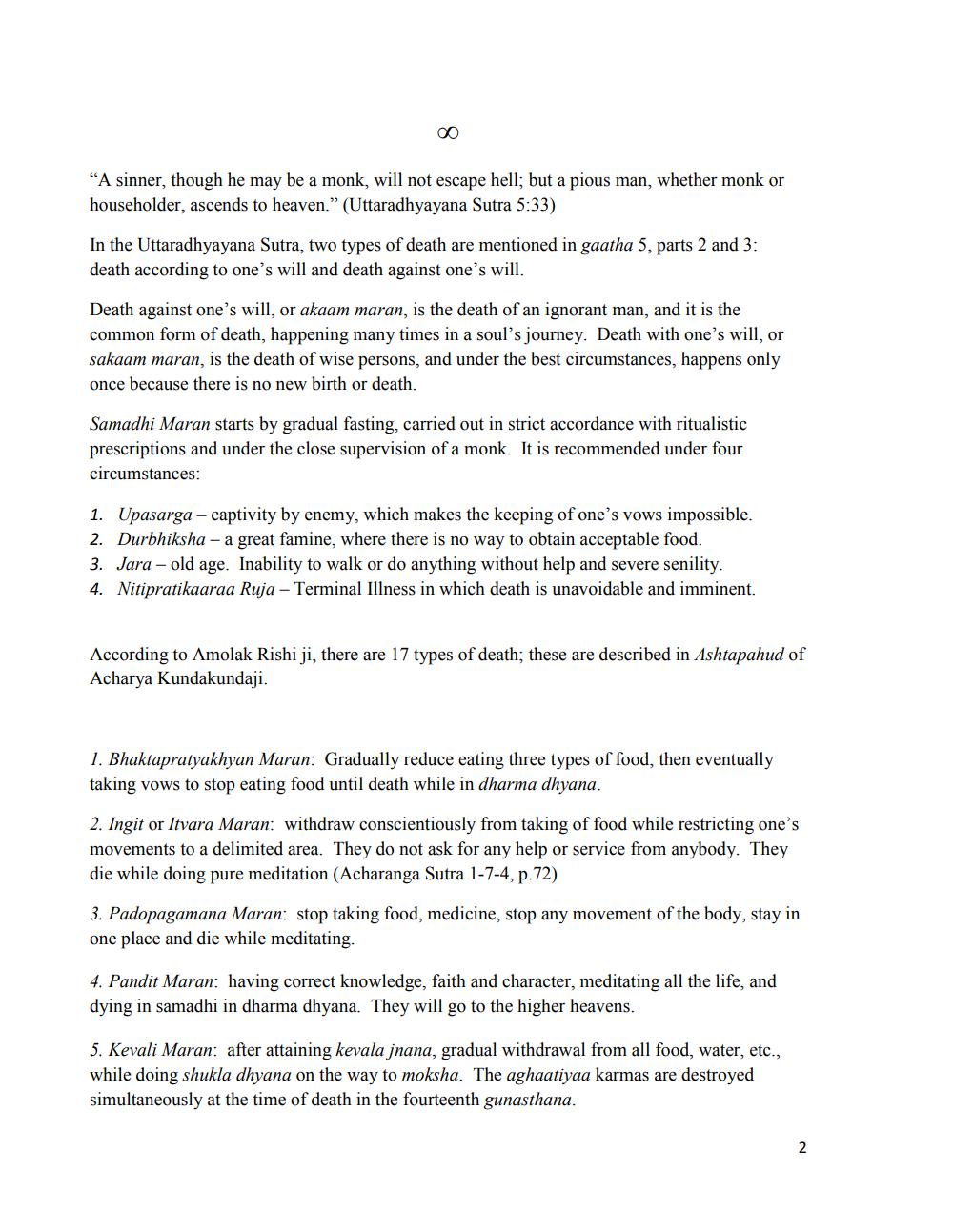Book Title: Death in Jain Agamas Exploration and Personal Reflection Author(s): Shantilal D Parakh Publisher: Shantilal D Parakh View full book textPage 2
________________ "A sinner, though he may be a monk, will not escape hell; but a pious man, whether monk or householder, ascends to heaven." (Uttaradhyayana Sutra 5:33) In the Uttaradhyayana Sutra, two types of death are mentioned in gaatha 5, parts 2 and 3: death according to one's will and death against one's will. Death against one's will, or akaam maran, is the death of an ignorant man, and it is the common form of death, happening many times in a soul's journey. Death with one's will, or sakaam maran, is the death of wise persons, and under the best circumstances, happens only once because there is no new birth or death. Samadhi Maran starts by gradual fasting, carried out in strict accordance with ritualistic prescriptions and under the close supervision of a monk. It is recommended under four circumstances: 1. Upasarga-captivity by enemy, which makes the keeping of one's vows impossible. 2. Durbhiksha - a great famine, where there is no way to obtain acceptable food. 3. Jara-old age. Inability to walk or do anything without help and severe senility. 4. Nitipratikaaraa Ruja - Terminal Illness in which death is unavoidable and imminent. According to Amolak Rishi ji, there are 17 types of death; these are described in Ashtapahud of Acharya Kundakundaji. 1. Bhaktapratyakhyan Maran: Gradually reduce eating three types of food, then eventually taking vows to stop eating food until death while in dharma dhyana. 2. Ingit or Itvara Maran: withdraw conscientiously from taking of food while restricting one's movements to a delimited area. They do not ask for any help or service from anybody. They die while doing pure meditation (Acharanga Sutra 1-7-4, p.72) 3. Padopagamana Maran: stop taking food, medicine, stop any movement of the body, stay in one place and die while meditating. 4. Pandit Maran: having correct knowledge, faith and character, meditating all the life, and dying in samadhi in dharma dhyana. They will go to the higher heavens. 5. Kevali Maran: after attaining kevala jnana, gradual withdrawal from all food, water, etc., while doing shukla dhyana on the way to moksha. The aghaatiyaa karmas are destroyed simultaneously at the time of death in the fourteenth gunasthana. 2Page Navigation
1 2 3 4 5 6
